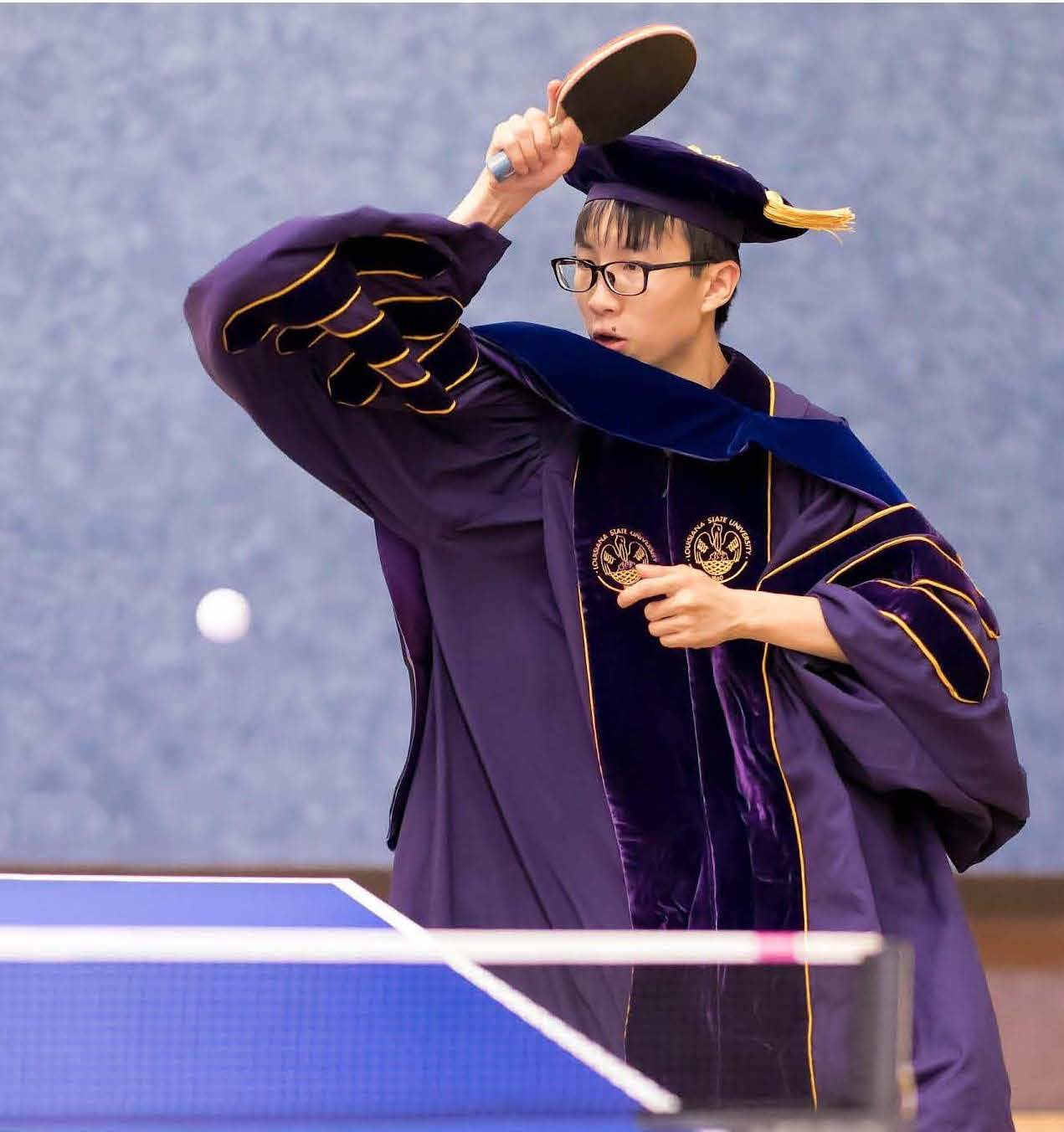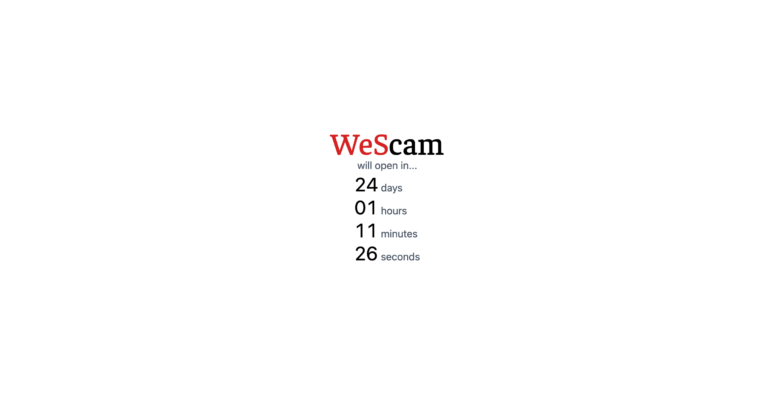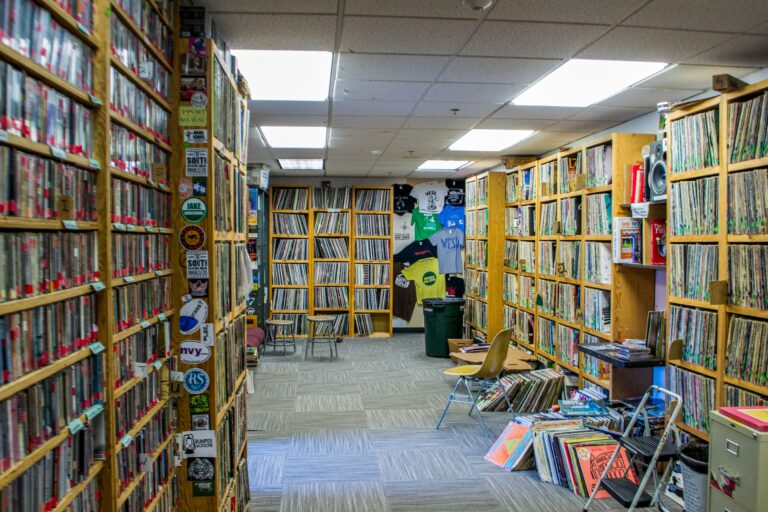Office Hours with Yu-Chan Chang: Spinning Paddles and Demystifying Math

Despite arriving at the University only two years ago, Postdoctoral Teaching Fellow Yu-Chan Chang is well-known by math majors and non-math majors alike. His classes, ranging from introductory to higher-level math courses, are always full by the end of the course pre-registration period. With meticulously crafted lesson plans, unwavering encouragement, and a knack for weaving engaging math anecdotes into his lectures, Chang’s classes are wildly popular. The Argus recently sat down with him to discuss his journey in the field of mathematics, the intersection of math and table tennis in his teaching philosophy, and the real-life application of mathematical training.
The Argus: How long have you been teaching at the University?
Yu-Chan Chang: This is my second year at Wesleyan. I started teaching here in Fall 2022.
A: Could you tell me more about your background prior to coming to Wesleyan?
YC: I’m from Taiwan and I came to the United States about 11 years ago to pursue my PhD at Louisiana State University. After I graduated, my first job was [as] a postdoc at University of Wisconsin, Madison. Then, I moved to Emory University for my second postdoc. Finally, Wesleyan is my third postdoc position.
A: How was your journey in mathematics?
YC: I didn’t initially like math during my undergrad, even though I majored in math. The higher education system in Taiwan is actually different to the one in the United States; instead of declaring their major later on in their undergrad journey, students in Taiwan declare their major upon their entrance to university. In my last year of undergrad, I took a course called geometry and that was the turning point for me. I found it so interesting that I continued to pursue a master’s degree in Taiwan. As I learned more about advanced math, I became more curious about math and that’s when I decided to pursue a PhD. The main motivation for me was I wanted to know more.
A: That geometry class must have been so interesting for you to completely change your attitude toward mathematics! Is your research area now still related to geometry?
YC: Yeah, my research is related to geometry, but not exactly geometry. One of my main research interests is to study a mathematical object called groups, which are abstract objects in mathematics that have intriguing properties. For example, we can see this concept [simply] in integers as they form the structure of groups with their unique properties.
A: How do you think mathematics relates to real life?
YC: I think the clearest application of mathematics in real life is in simple things, like going to the supermarket because, well, you need to add and figure out how much money you spent, right? And if you buy stocks or invest, you might also need to use arithmetic and algebra to calculate equations like return on investment, future value, and all that. But, beyond this basic arithmetic, it’s not always easy to observe real-life math applications in daily life, especially if you are referring to pure mathematics.
A: So, other than doing math, what do you usually do in your day-to-day life?
YC: I actually spend a lot of time on campus. Besides doing math and preparing for my lectures, I spend a lot of my time playing table tennis. I think I spend roughly 10 hours a week playing table tennis. When I’m busy, I spend less time, but I generally play two to three times a week.
A: You sound like a dedicated table tennis player! How long have you been playing table tennis?
YC: I have been playing table tennis since I was 10 years old. I had some professional training for a couple years, but that stopped when I entered middle school. I only picked it up and played it more seriously again when I did my undergrad. Before coming to the United States, I also coached table tennis for many years, working with players aged 7 to 12.
A: Do you see any parallels between the strategic thinking required in both table tennis and mathematics?
YC: One of my teaching philosophies is actually very related to coaching table tennis. In Taiwan, many people are serious about table tennis to the point that they push their kids to play four to seven hours a day so that they can win prizes in competitions. This, obviously, puts a lot of pressure on young kids, which could eventually make them hate table tennis as they grow up. As a coach, I wanted them to continue playing and enjoying the sports. This goal translated into my teaching philosophy in math. I always try to encourage people to learn for themselves and to not compare themselves to other people’s progress. Ultimately, I want students to know that everyone’s learning pace is different and to direct their focus on their own interest and learning. This way, I hope to encourage students to continue taking more classes if they have an interest in math, regardless of their speed of learning. So that’s one of my teaching philosophies; I want people to keep learning and appreciate math.
A: What would you say to students who feel discouraged or intimidated by math?
YC: Honestly, it’s very normal to be intimidated or scared of math, because it’s not always easy. Learning and understanding math takes time, and often, people suffer in the process. If you are considering trying to learn math but you had a bad experience with math in the past, I think there is no harm in trying out a math class at Wesleyan. If, after taking one semester of any math course, you don’t like it, that’s completely okay. It is actually good that you know what you don’t like. That will help you find your path; not everyone has to like math. This will definitely give you a more well-informed decision.
A: What motivates you to continue teaching?
YC: I like helping people. As a teacher, I want students to know that when they are struggling to understand the material, they are always welcome to reach out to me. My goal in my class is always to encourage students to always try their best and help them conquer the fear of failure. I want them to find newfound joy, curiosity, and spark in math.
A: What message or advice would you give to students? It can be general or specific to math.
YC: Let’s see. Oh, maybe two things. So most people would ask, “Why are we learning math? It’s not like I’m going to use this every day.” I think studying math is similar to going to the gym in this context. Many people go to the gym to work out, lift weights and etcetera; most of them are not trying to compete in the Olympics, right? Their goal in general is more towards trying to make themselves more healthy and fitter. That’s similar to learning math. It’s a way to sharpen your mind. The knowledge in the book is not the most important thing because, well, you can always find resources online. The training you get from learning math is essential; it gives you the ability to absorb abstract concepts, read difficult material, analyze questions, and find out strategies to solve problems. The skills you build from learning math are important.
The second thing is that it is okay if you feel that you are not doing as well as you would have expected in a math class. If you are enjoying the process, stay on the track. I was never a straight-A student—I got Bs and Cs—but I found out that I enjoyed the process; I like thinking and understanding abstract concepts. So, if you want to satisfy your own curiosity and don’t mind the struggle, you should continue pushing on!
Francisca Wijaya can be reached at fwijaya@wesleyan.edu.








Leave a Reply